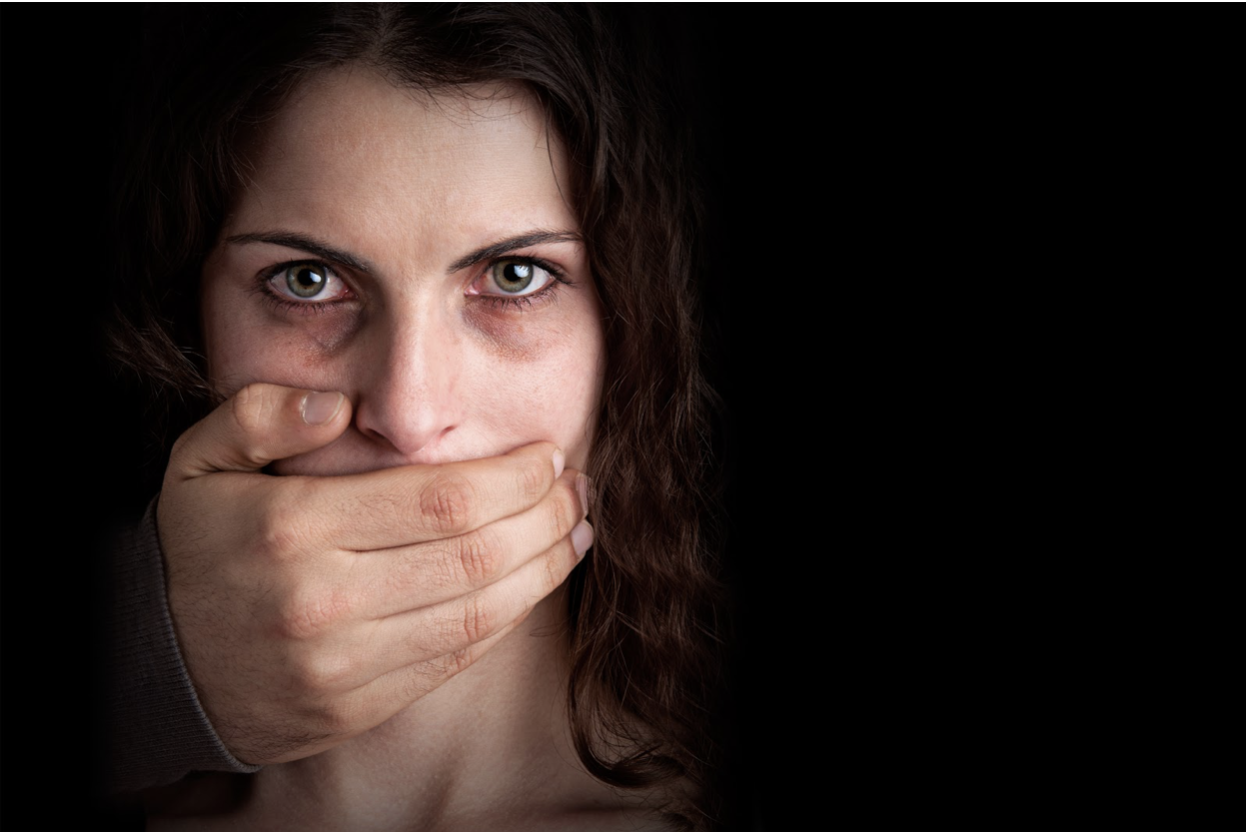
PARMITA DAS – APRIL 2ND, 2019
Analysis of the Phenomenon of Economic Abuse
Economic abuse is a form of abuse where an intimate partner has control over the other partner’s access to economic resources. It involves behaviors that control a person’s ability to acquire, use, and maintain economic resources, threatening their economic security and potential for self-sufficiency.
Economic abuse diminishes the victim’s capacity to support themselves and forces them to depend on the perpetrator financially. It is an invisible form of domestic abuse where the perpetrator’s vicious and deliberate pattern of behavior destroys the victim’s hopes for a secure future, both for themselves and their children. Often used as a controlling mechanism, it is cited by victims as the biggest barrier to exit that prevents them from leaving an abusive relationship. Victims are often dealt the difficult choice of staying and facing mistreatment, or leaving and facing poverty and homelessness. This pervasive problem occurs across all socio-economic levels and affects 94-99% of domestic violence victims.
Modus Operandi
Abusers may employ a broad spectrum of economically abusive techniques in their attempts to maintain dominance and control over their partners, and these tactics have a detrimental impact on the victim’s economic stability. The perpetrator often restricts the victim’s ability to find employment, maintain, or advance their career. Abusers hinder their partners’ ability to go to work by sabotaging or restricting their access to transportation, preventing sleep, refusing to provide child care, or inflicting visible injuries. They may interfere with their partner’s job by showing up at their workplace, harassing them with telephone calls throughout the workday, or threatening their coworkers. They may also impede their partner’s efforts to take part in self-improvement activities aimed at increasing marketability in the labor force and improving their chance at obtaining a decent job by preventing them from attending job fairs and interviews.
Abusive partners exercise power by limiting their partner’s access to household resources, controlling resource distribution, and monitoring how resources are used. Sometimes, if the partner is employed, abusers may demand that they hand over their paycheck, depriving them of access to their own money; sometimes abusers may spend the victims’ money without their consent and exploit their economic resources. The lack of transparency when it comes to the financial decisions of the household leaves victims vulnerable and aggravates the power imbalance. For example, by withholding the resources needed by the victim to afford to see a doctor or access medical care, the perpetrator may impede the victim’s ability to recover or become independent from them.
When a partner lacks financial resources and employment, they may use economically abusive tactics to reestablish power at home. Research conducted by Michigan State University suggests that when a woman’s economic status is greater than her partner’s, she may be at an increased risk of domestic abuse. The study indicates that abusive men may steal, damage, or destroy their partners’ possessions, household items, utilities, and assets. These tactics deplete women’s economic resources in two ways: the loss of property, and incurrence of costs to replace and repair the damage.
Abusive partners use exploitive control tactics to obstruct the other’s ability to maintain financial resources by having debt generated in their name. Litigation can become a tool for batterers to continue their predatory behavior. Ongoing engagement in legal proceedings is often used as a form of punishment by batterers to prolong the burden and impact of legal costs.
Impacts of Economic Abuse
Economic abuse seriously impedes a person’s emotional, physical, and psychological well-being. It feeds into emotional abuse, as forced financial dependency can be degrading, reinforcing the victim’s feelings of worthlessness. The health of those with economically abusive partners may become compromised, as they endure stress associated with chronic economic exploitation. Such abuse can also put the victim in physical danger, as it strips them of the means to leave their partners.
Abusers may employ sabotage techniques to inhibit the educational pursuits, employability, or job performance of victims. Due to reasons arising from the abuse, 21-60% of victims of intimate partner violence lose their jobs. Between 2005 and 2006, 130,000 stalking victims were asked to leave their jobs as a result of their victimization. According to the Centers for Disease Control and Prevention, domestic violence victims lose about 8 million days of work each year, and the cost of domestic violence exceeds $8.3 billion each year in healthcare expenses and productivity losses.
Some victims of economic abuse do not possess the job skills and wage-earning power needed to support themselves and their children. Upon leaving their abuser, victims may experience a sharp decrease in standard of living or become dependent on government assistance.
In some cases, victims are held legally responsible for the loss of assets and the debt incurred as a result of the perpetrator’s economically abusive behavior. This severely limits their financial security and future opportunities. Coerced economic crimes, which are crimes committed under duress to help obtain a financial or professional advantage, sometimes lead to the arrest of the survivors themselves, creating additional barriers to economic security, while failing to hold the true offenders accountable for their actions.
Approaches to Address Economic Abuse
A major reason cited by women who leave shelters and return to abusive partners is lack of alternative housing and income. Similarly, a disproportionate number of homeless women have experienced domestic violence and became homeless after fleeing from their abusers. Compensation in the form of an adequate income would allow survivors to meet their basic needs and rebuild their lives, while also opening the door to real and lasting financial independence.
Victims of economic abuse can access existing resources and legal protections to protect themselves from their abusers. The Survivors’ Empowerment and Economic Security Act allows for greater economic freedom for domestic violence victims by providing short-term emergency benefits, guaranteeing employment leave and unemployment compensation, and prohibiting insurance restriction or job discrimination. The Crime Victim Assistance Program offers financial assistance to help with some of the costs and services needed to recover from or cope with the effects of abuse. The National Foundation for Credit Counseling, a nonprofit organization, offers free financial education and advice for those dealing with the aftermath of economic abuse.
In addition, legal protections are in place that uphold the victim’s right to take time off from work for court visits, and help protect them against job discrimination. Victims can apply for court-issued protection orders that prevent abusers from contacting, threatening, stalking, or harassing them. The Women’s Legal Defense and Education Fund aims to empower victims of domestic abuse through the provision of information regarding their rights and the legal process.
Although 1 in 4 men and 1 in 3 women experience domestic abuse in their lifetimes, research into economic abuse is still in its infancy and has focused almost exclusively on physical violence. More research is needed to further develop interventions, and tailor existing programming to address the needs of people whose financial health is compromised.
Featured Image Source: Shutterstock
Disclaimer: The views published in this journal are those of the individual authors or speakers and do not necessarily reflect the position or policy of Berkeley Economic Review staff, the Undergraduate Economics Association, the UC Berkeley Economics Department and faculty, or the University of California, Berkeley in general.




Hi. My name is Debra Denny and I reside in Los Alamitos, California. I am presently in a five year battle with my ex husband. I have been battling a David vs. Goliath scenario. He has conducted every fraudulent means to keep me from receiving income. I cannot receive any legal assistance. I simply need guidance. I have survived this long and I am presently self-represented. I am intelligent, I lost a large part of myself during the marriage, but I am stronger, smarter and driven by the love of my children. I am in a quest to win this not just for me but for all other families suffering from the same situation. I cannot limit those in need to a gender but I am aware that females are the prominent victims with their children used as weapons to hurt or injure them. I am hoping to finally receive some actual guidance. I have already subpoenaed all the financial documentation, I simply need legal guidance on how to pursue the matter. I am going to seek for a Receivership on the business due to his fraudulent acts and I will ask them he compensate me for the loss of my portion of the value of the family home (he sold the family home with false statements that the business was nearly defunct).
Please contact me if you could be of any assistance. Thank you.
Debra Q. Denny
(562)619-2532